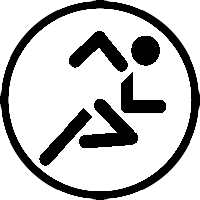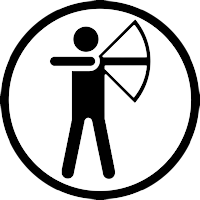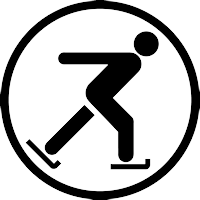Not Motivated? Go Exercise Anyway!
Your body doesn't care if your brain is not motivated. The results will be the same if you get out there and just do it!
Topics
10 Exercise Tricks
12 New Years Resolutions
12 Steps of Becoming Healthier
30 Days as a Vegetarian
5 Slimming Foods
6 Minute Cardio
8 Super Fun Exercises
Ab Workouts
Accessibility
Adrenaline High Weight Loss
Afterburn Effect
Archery
Beach Perfect Body
Bicycling
Boxing
Building Endurance
Calorie Myths
Cardio Exercises
Competitive Sports
Dancing
Dieting
e
Equipment
Exercise Books
Exercise Humour
Exercise Myths
Exercise Questions
Exercise Quotes
Family Fitness
Flexibility
Frugal Exercises
Healthy Food
Home Gym
Interval Training
Jogging
Living Longer
Loose Skin
Mission Statement
Morning Exercises
Motivating Yourself
Myth Busting
Notes
Obesity and Weight Loss
Personal Trainers
Popular
Professional Athletes
Rest and Sleep
Running
Sit Ups
Special Offers
Sports Injuries
Stretching
Summer Activities
Superfoods
Swimming
Testimonials
Testing Your Limits
The Pet Project
Toronto
Toronto Gyms
Tracking your Calorie Loss
Unusual Exercises
Vacation Exercises
Walking and Hiking
Weightlifting
Whey Protein
Winter Activities
Yoga
Zen Exercising
Motivation and Persistence
"Success is almost totally dependent upon drive and persistence. The extra energy required to make another effort or try another approach is the secret of winning." - Denis Waitley
"Ambition is the path to success, persistence is the vehicle you arrive in." - William Eardley IV
"Continuous, unflagging effort, persistence and determination will win. Let not the man be discouraged who has these." - James Whitcomb Riley
“Success is the sum of small efforts, repeated day in and day out.” - Robert J. Collier
"Ambition is the path to success, persistence is the vehicle you arrive in." - William Eardley IV
"Continuous, unflagging effort, persistence and determination will win. Let not the man be discouraged who has these." - James Whitcomb Riley
“Success is the sum of small efforts, repeated day in and day out.” - Robert J. Collier
Anatomical Terms for Athletes
Ever had a personal trainer refer to a part of the body using a word you didn't know? Well here is a handy guide to the various body parts / muscles most commonly referred to and likely a few you didn't know.
Well here is a two handy diagrams showing all the muscles of the human body so you can take note of the names of muscles you didn't know before. Also important if you ever get a sports injury and want to tell the doc where you hurt yourself.
If you are ever in doubt ask your personal trainer to slow down and explain which muscles they mean exactly. It never hurts to ask.
If you live in Toronto (or any other major city) you can also find lots of bookstores that will have a variety of anatomy books which can explain what you are looking for. Try to find an anatomy book that is more attuned to exercising.
In the future I may even post reviews on books I think are particularly useful.
Well here is a two handy diagrams showing all the muscles of the human body so you can take note of the names of muscles you didn't know before. Also important if you ever get a sports injury and want to tell the doc where you hurt yourself.
If you are ever in doubt ask your personal trainer to slow down and explain which muscles they mean exactly. It never hurts to ask.
If you live in Toronto (or any other major city) you can also find lots of bookstores that will have a variety of anatomy books which can explain what you are looking for. Try to find an anatomy book that is more attuned to exercising.
In the future I may even post reviews on books I think are particularly useful.
Body Weight Exercises
THE BENEFITS OF BODY WEIGHT EXERCISES
#1. No Investment Needed. You don't need a gym memberships or expensive equipment - Seriously, you can get started with a fitness program today just by Googling bodyweight exercises and clicking images to search for ideas (examples shown here).
If you do decide to invest in equipment, buying a rope or chin up bar (or rings) is pretty cheap and frugal.
#2. Highly Effective - Our bodies are heavy. That's all the weight you need. Other cardio based body weight exercises such as mountain climbers, step climbing and jumping jacks raise the heart rate fast because you are lifting your own body weight.
#3. Very Easy to Learn - Body weight exercises are a lot less technical than the form for weightlifting free weights. No messing around with machines.
#4. No Need for Spotters - A heavy bench press needs a spotter to keep the workout safe. 50? 100 push ups? It doesn't matter, you'll be okay on your own!
#5. Anytime, Anywhere! - Need I explain more? You can do body weight exercises anywhere, even in bed!
#6. No Need to Hire a Personal Trainer - I admit this website is for my personal training business in Toronto, but I also love to give free advice on how people can exercise on their own in a frugal manner without the need to hire anyone. You don't even need a gym membership to do body weight exercises!
Body weight exercises can be a workout all on their own or used in conjunction with free weights, machines or as intervals in between bursts of cardio.
#1. No Investment Needed. You don't need a gym memberships or expensive equipment - Seriously, you can get started with a fitness program today just by Googling bodyweight exercises and clicking images to search for ideas (examples shown here).
If you do decide to invest in equipment, buying a rope or chin up bar (or rings) is pretty cheap and frugal.
#2. Highly Effective - Our bodies are heavy. That's all the weight you need. Other cardio based body weight exercises such as mountain climbers, step climbing and jumping jacks raise the heart rate fast because you are lifting your own body weight.
#3. Very Easy to Learn - Body weight exercises are a lot less technical than the form for weightlifting free weights. No messing around with machines.
#4. No Need for Spotters - A heavy bench press needs a spotter to keep the workout safe. 50? 100 push ups? It doesn't matter, you'll be okay on your own!
#5. Anytime, Anywhere! - Need I explain more? You can do body weight exercises anywhere, even in bed!
#6. No Need to Hire a Personal Trainer - I admit this website is for my personal training business in Toronto, but I also love to give free advice on how people can exercise on their own in a frugal manner without the need to hire anyone. You don't even need a gym membership to do body weight exercises!
Body weight exercises can be a workout all on their own or used in conjunction with free weights, machines or as intervals in between bursts of cardio.
Vitamin D: Essential for Your Winter Diet
Being outside in the sunshine gives you lots of Vitamin D. Vitamin D is unusual because it can be ingested as cholecalciferol (Vitamin D3) or ergocalciferol (Vitamin D2)
and also because your body can synthesize it (from cholesterol) when sun
exposure is adequate (hence its nickname, the "sunshine vitamin") thanks to your exposed skin in the warmer months.
However as the days grow longer and the sun shines less, people often develop a Vitamin D deficiency in the winter months. A lack of Vitamin D causes your body to start storing extra fat (thanks to evolution, our bodies naturally start storing more fat during the winter months for survival purposes).
Thus as it gets colder humans start wearing more clothing, covering up more (which means less Vitamin D being synthesized through your exposed skin), and the shortage of Vitamin D results in you packing on the extra pounds.
HOWEVER you can fix this through 4 methods:
#1. Go outside and exercise!
Even if you just go for a walk, it doesn't take much to get your daily Vitamin D needs outside. Running around in a swimsuit in the summer you can get all you need in a mere 5 minutes. Wearing a jacket, hat, scarf, etc in the winter and its going to take 60 to 90 minutes outside in the sun.
#2. Vitamin D supplements. Huzzah for Vitamins!
Pay attention to the dosage on the bottle and how much Vitamin D you eat / absorb anyway. Ideally you want 5,000 to 10,000 IUs per day (depending on your size/weight) or the equivalent in micrograms, which is 125 to 250 micrograms per day. A typical Vitamin D pill might have 25 mcg/1000 IUs or 50 mcg/2000 IUs in it.
1 or 2 pills, plus your regular food (depending on what you are eating) should provide all your daily needs. Don't bother to overdo it.
#3. Regular foods. Track your current Vitamin D consumption.
Some of the foods you are eating might have Vitamin D in it already. eg. 125 ml of 2% Milk has 25% of your daily Vitamin D needs. That is roughly the amount you put on your cereal in the morning. It helps to check the label. Thus if you LOVE milk and drink a litre per day you are getting 100% of your Vitamin D needs just from the milk.
#4. Eat foods that are high in Vitamin D.
If you are low in Vitamin D you can increase your intake of foods high in Vitamin D to compensate.
Now immediately you think fruits and vegetables, and you are partially correct. Some veggies are high in Vitamin D, but there are number of foods that are even higher in Vitamin D.
Health Benefits of Vitamin D
However as the days grow longer and the sun shines less, people often develop a Vitamin D deficiency in the winter months. A lack of Vitamin D causes your body to start storing extra fat (thanks to evolution, our bodies naturally start storing more fat during the winter months for survival purposes).
Thus as it gets colder humans start wearing more clothing, covering up more (which means less Vitamin D being synthesized through your exposed skin), and the shortage of Vitamin D results in you packing on the extra pounds.
HOWEVER you can fix this through 4 methods:
#1. Go outside and exercise!
Even if you just go for a walk, it doesn't take much to get your daily Vitamin D needs outside. Running around in a swimsuit in the summer you can get all you need in a mere 5 minutes. Wearing a jacket, hat, scarf, etc in the winter and its going to take 60 to 90 minutes outside in the sun.
#2. Vitamin D supplements. Huzzah for Vitamins!
Pay attention to the dosage on the bottle and how much Vitamin D you eat / absorb anyway. Ideally you want 5,000 to 10,000 IUs per day (depending on your size/weight) or the equivalent in micrograms, which is 125 to 250 micrograms per day. A typical Vitamin D pill might have 25 mcg/1000 IUs or 50 mcg/2000 IUs in it.
1 or 2 pills, plus your regular food (depending on what you are eating) should provide all your daily needs. Don't bother to overdo it.
#3. Regular foods. Track your current Vitamin D consumption.
Some of the foods you are eating might have Vitamin D in it already. eg. 125 ml of 2% Milk has 25% of your daily Vitamin D needs. That is roughly the amount you put on your cereal in the morning. It helps to check the label. Thus if you LOVE milk and drink a litre per day you are getting 100% of your Vitamin D needs just from the milk.
#4. Eat foods that are high in Vitamin D.
If you are low in Vitamin D you can increase your intake of foods high in Vitamin D to compensate.
Now immediately you think fruits and vegetables, and you are partially correct. Some veggies are high in Vitamin D, but there are number of foods that are even higher in Vitamin D.
- Shiitake & Button Mushrooms (especially dried shiitake mushrooms). Mushrooms in general are rich in Vitamin B and D.
- Mackerel. A 2 ounce portion of Mackeral provides 51% of your daily Vitamin D needs. Also rich in Omega-3.
- Sockeye Salmon. Same as Mackerel. A 2 ounce portion provides 51% and is rich in Omega-3.
- Herring. These fish eat plankton, which is really high in Vitamin D.
- Sardines. A single small tin of sardines provides 70% of your daily needs.
- Catfish. You won't see catfish in your average supermarket, but like herring its chockful of Vitamin D.
- Tuna. 3 ounces of tuna daily provides 50% of your Vitamin D needs.
- Cod Liver Oil. If you can get past the aroma, 1 tablespoon of the oil provides more than enough Vitamin D for the day.
- Eggs. 1 small egg provides 10% of your daily needs.
Health Benefits of Vitamin D
- Helps prevent cancer, osteoporosis, diabetes, heart disease, hypertension.
- Protects and lubricates of your bones, teeth and hair.
- Regulates muscular cellular growth and healthy cell activity.
- Reduces storage of fat.
- Reduces the inflammatory response to cancer, diabetes, obesity, etc.
- Protects against adult osteoporosis.
- Reduces risk of breast cancer in women and prostate cancer in men.
- Reduces the "Winter Blues", the feeling of depression from lack of sun.
Subscribe to:
Posts (Atom)
Followers
Popular Posts
-
The most popular blog post on this website thus far is one titled Weight Loss + Loose Skin , even though my later post Preventing Loose Sk...
-
Q "Hello! I recently suffered an injury to my nose during boxing and when it was healing I noticed that my nose had become cro...
-
Q "Hi! I found your nose exercise page this morning. Cannot wait to try them. Are there exercises for my crooked nose? Pictur...
-
Okay, you've lost some weight... but you've noticed that your skin now feels looser because maybe you lost weight in a hurry and now...
-
Want to burn more calories and trick your body into burning more calories without thinking about it? (Okay, some of them you do have to th...
-
Now you might first be wondering - "What is a thigh gap???" Basically it is a term commonly used by fashion-conscious young wo...
-
I was recently asked a series of archery questions by a reporter from the National Post, a Canadian newspaper. The questions pertained to a ...
-
Q "Hello! Do cold showers really burn calories? I've heard that drinking ice water burns calories and someone told me that...
-
Making your desktop image for your computer something which motivates you to exercise... or printing out various motivational images and put...
-
The chart below shows the amounts of weight that actor Christian Bale loses and gains depending on the role he is playing... including the i...
Cardio Trek Posts






























